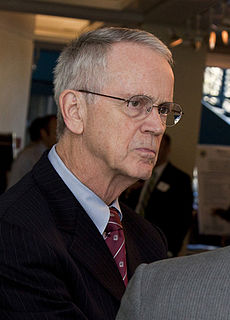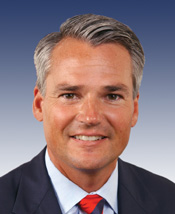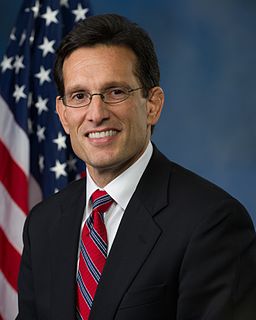A Quote by Charles Vest
There is no question that we are in a period in which we are going to have to use those sources to fund about 35 million dollars a year that used to be paid for by the federal government.
Related Quotes
During the fiscal year ending in 1861, expenses of the federal government had been $67 million. After the first year of armed conflict they were $475 million and, by 1865, had risen to one billion, three-hundred million dollars. On the income side of the ledger, taxes covered only about eleven per cent of that figure. By the end of the war, the deficit had risen to $2.61 billion. That money had to come from somewhere.
As soon as Mr. Roosevelt took office, the Federal Reserve began to buy government securities at the rate of ten million dollars a week for 10 weeks, and created one hundred million dollars in new [checkbook] currency, which alleviated the critical famine of money and credit, and the factories started hiring people again.
I do think we have a food problem. In 2006, which is the year for which we have the latest data, 35.5 million Americans were food insecure. That means there are 35.5 million Americans who are so hard up at some point during the year that they didn't know where their next meal was coming from. That's a lot of Americans. They don't get reported very much because there's nothing spectacular about people skipping a meal because they're poor. The media tends to ignore that, just as it ignores the sort of chronic food shortages elsewhere in the world.
Malaria is a disease that kills one to three million people a year. 300 to 500 million cases are reported. It's estimated that Africa loses about 13 billion dollars a year to the disease. Five dollars can save a life. We can send people to the moon; we can see if there's life on Mars - why can't we get five-dollar nets to 500 million people?
I have to tell you with regards to global warming that that's something, which, you're right, the scientists haven't entirely resolved, but no question about one thing, it's getting warmer, and a lot of good reasons for us to use less energy, to use it more efficiently and to develop sources here in this country that could allow us to be more independent of foreign sources.
In 2013 Citigroup had profits of $6.4 billion in the United States. They paid no federal income tax and, in fact, received a rebate from the IRS of $260 million. That same year J.P. Morgan had $17.2 billion in profits in the U.S. They also paid no federal income tax. Do you think it's time for tax reform?


































